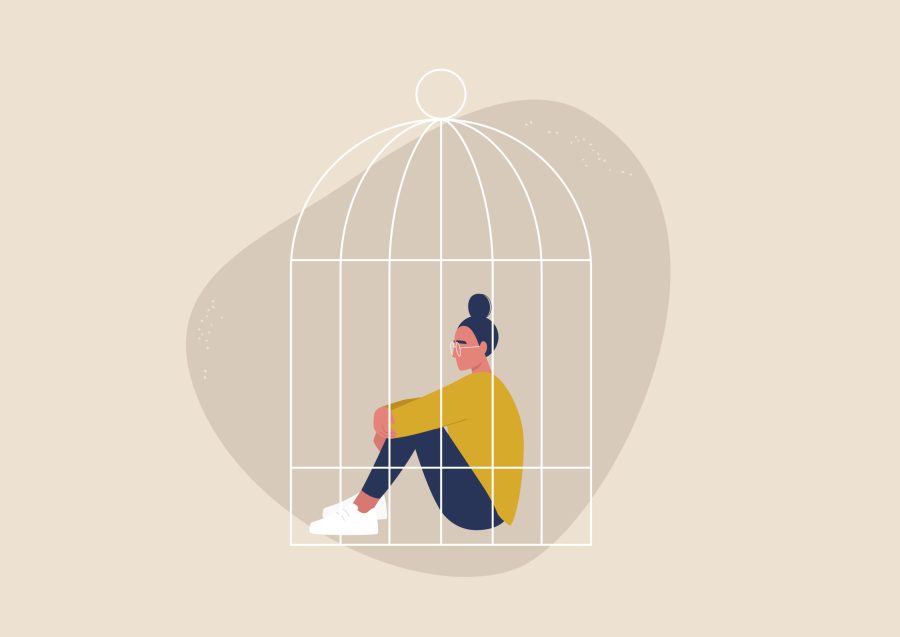A Global Scan of Activities to Address Domestic and Family Violence During Lockdown

During the height of the COVID-19 pandemic, the World Bank Gender Team kept a database of activities being implemented to address gender-based violence across the globe.
Below is a selection of other key interventions by different countries that were captured by a further IPPO scan.
IPPO is hosting an online event on Wednesday, Sept 14th at 10am: Ending violence against women and girls: The legacy of the pandemic and new strategies. Please sign up here
Albania
- The Albanian government doubled the level of financial benefit that at-risk women typically received.
- Penalties for the perpetrators of domestic violence were tightened.
- Measures to continue to protect women, despite precautionary health restrictions, were put in place.
- Specialist support services for at-risk women, children and family members continued to operate during the pandemic.
- The Ministry of Health and Social Protection in cooperation with the United National Development Programme (UNDP) organised three cycles of online training with local coordinators.
- Albania set up its first crisis management centre for sexual violence cases.
Austria
- After a virtual roundtable on the issue in May 2021, the Austrian government pledged an additional 24.6 million euros ($30 million) for violence prevention — a significant increase over existing funding, but a small fraction of the 228 million euros requested by organisations in the field.
- The federal government organised a ‘special summit’ on violence against women in May 2021 resulting in new measures to combat violence against women, including enhanced data and information sharing between authorities, better screening of potential motives, and enhanced dedicated training efforts for police officers on prevention.
- The Federal Minister for Women and Integration also tasked the Federal Criminal Police with conducting a qualitative study of all homicides against women in the past decade.
South Africa
On 24 March 2020, the Chief Justice of the Republic of South Africa delegated authority in terms of section 8(3) of the Superior Courts Act, 2013 to all Heads of Court in the Superior Courts and Magistrates/Lower Courts to issue such Directives as would enable access to courts in relation to any urgent matter, bail applications, Maintenance and Domestic Violence related matters and cases involving Children issues.
China
Guidance was published online to help women seek support if they encountered domestic violence during the pandemic, which included directions on how to access online legal aid.
Malaysia
The Women, Family, and Community Development Ministry reversed a decision to shut down the Talian Kasih hotline, which provides counselling services to those suffering emotional distress, and instead kept it open as an essential service.
Singapore
In April 2020, The Minister for Social and Family Development Desmond Lee noted a trend in “higher rates of domestic violence, domestic quarrels and friction in the family” in countries that had imposed movement restrictions. He said a national care hotline would be set up for callers to get support from psychologists, counsellors and others. Family Violence Specialist Centres (FVSC) and Child Protection Specialist Centres would also be “adequately resourced during this time” as they were deemed essential services. The hotline was officially launched in February 2021.
Australia
Australia introduced changes to its criminal code to better protect individuals from family violence. These included
- Allowing the court to impose a requirement that an offender be subject to electronic monitoring under Conditional Suspended Imprisonment Orders and Intensive Supervision Orders
- Permitting a judicial officer to include, as a home detention bail condition, a direction that an accused be subject to electronic monitoring
- Improving access to restraining orders, including enabling restraining order applications to be lodged online
- Creating a separate offence for breach of a family violence restraining order, increasing the penalty to $10,000 from $6,000 and extending the limitation period for prosecuting breach of restraining order offences to two years
- Allowing the Family Court and Children’s Court to issue interim restraining orders on an ex-parte basis, in the same way the Magistrates Court is permitted to do so.
The introduction of online applications for restraining orders in May 2020 to better protect victims and survivors of violence amid the COVID-19 pandemic.
Australia’s family court established a dedicated list to deal exclusively with parenting and safety issues that arose from the COVID-19 restrictions. The family court of Australia and the federal circuit court announced they would fast track lockdown-related cases, in response to an increase in urgent applications for hearings.
The government introduced an AUD $150 million ($92 million) package to support victims of domestic, family and sexual violence due to the fallout from the coronavirus outbreak.
